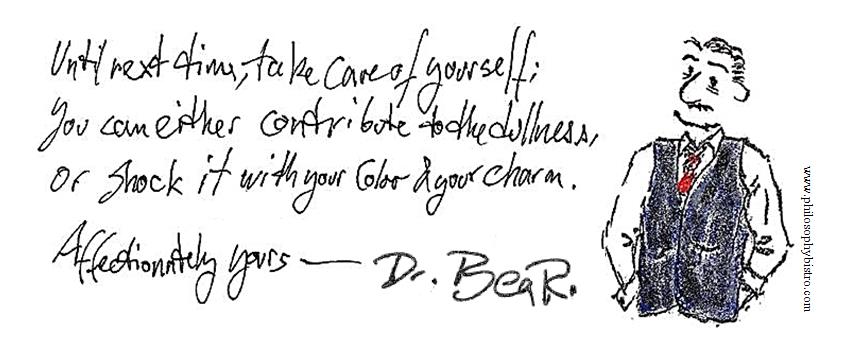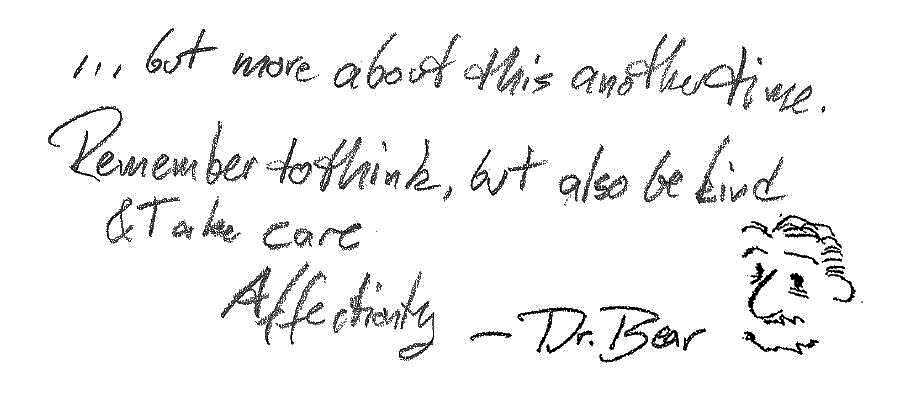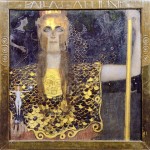The uses and misuses of swearing
![]() Editors note: the point of this post is that swearing can at times be needless, overused, immature. hostile, and dull. However, to make this point, I use a fair amount of that language. If you are not jaded, not callous, and not used to this sort of talk, I commend you, but I do recommend that you not read further.
Editors note: the point of this post is that swearing can at times be needless, overused, immature. hostile, and dull. However, to make this point, I use a fair amount of that language. If you are not jaded, not callous, and not used to this sort of talk, I commend you, but I do recommend that you not read further.
Continuing my tradition of ambiguous Valentine’s Day posts, I would like to talk about swearing.
I appreciate swearing as much as anyone. I grew up in the Swabian parts of Germany, and remember the noble words of the regional hero Götz von Berlichingen. I remember being amazed at the ability of a friend of mine–Couture–to carry on whole complex conversations by simply changing the inflection of 3 little word: “fuckin’ shit, man.” One of the kindest, warmest men I know uses FUCK the way my dog sheds, and I honestly wouldn’t change him.
When Dominique Strauss-Kahn’s defense team says things like: “the prosecutors had greatly exaggerated the frequency of his “licentious evenings;” there had only been 12 in three years,” you might feel the need to say “he’s not out of control because it’s only four orgies a year?!? WHAT THE FUCK?!?” or its abrevicon WTF. Certainly what in the world?!? seems too mild to be appropriate, and what the hell?!? almost seems too mild. But if we are commenting on this shameful man/men like him in general/the French culture of sexism that allows it/the IMF and its policies in general, shouldn’t we try to do it with creative words which diminish and shame without making us sink to a comparable boorish and harsh level?
I think there comes a time when we must learn to use language judiciously and creatively, rather than the short-barrel blast of hell, shit, damn, or fuck.

First of all, swearing is used in contexts where it is totally unnecessary. Hey red-neck driving down the road trying to look ghetto: It is not necessary to say anything to that annoying tool minding his own business on the sidewalk as. It certainly is not necessary to spout an obscenity like a mid-Pennsylvania farm well spouts Frack-waste. What you look like is a pimpled piece of immaturity trying to shock the Junior High Librarian with his newly learned potty-words. This goes double for all you soft, maturity-frozen guys who don’t seem to own long pants. So guys: if you see someone harming an animal or disrespecting a woman, you might give them a piece of your mind, but save it for then.
Secondly, swearing in general—and the big four in particular—is overused. American culture at this point in the 21st century is overloaded with swearing. In everyday interactions one hears the sort of language one would have expected from Persian Gulf War vets, homeless psychotics mumbling to the voices they hear, or drunken Geordie teenagers taking the train home from a night out. Blue language is used as adjectives and adverbs when the person really means “I’m all like, you know?” Unrepeatables are repeated like birds in an Escher print.

Among the many things psychologist Steven Pinker discusses in his book The Language Instinct is swearing. It seems to exist in one form or another in most cultures, enough that the use of harsh language might be hard-wired into the linguistic centers of the brain. His theory is that when we want to use strong, forceful language, language that grows out of strong passions, language that elicits a response, we express ourselves by linking our words to objects that evoke strong feelings. Religion is surrounded by strong feelings, so we use the idea of strong, frightening things like eternal damnation with our casual HELL!!! and DAMN!!!! The impure emissions of the human body are shocking, so we use SHIT!!! Coitus as a public act is shocking, so we have our FUCK! I generally disagree with Pinker as to how much of language is innate and how much is social. I would argue that swearing is a language game within the web and weave of a specific group of cultural practices….

Sorry.
The purpose of swearing is to shock, to express strong feelings, to stop us in our tracks and make us pay attention. If this is over-used, than it loses its edge. If swearing becomes commonplace, then what is the point? MOTHER-FUCKING SON OF A BITCH!! is not an everyday phrase like “she was all like ‘I don’t know.'” It is a special phrase. It shouldn’t be worn from over-use when you need it for special occasions, like when your plan fails and instead of getting that pesky road-runner, you drop the Acme 500 pound weight on your foot, or you find out your husband is in jail in Virginia for statutory, or you look at the Presidential field for 2016.
Pepper is good, but too much pepper is just too much pepper.
Thirdly, I am not sure most people realize how harsh obscenity and profanity are. Yes, you might feel as if a certain corporation has jerked you around like a tether-ball, but you tossing a few dysphemisms into a conversation with a poor sales clerk is not going to change that. You may think letting some of that anger out will make you feel better (Hello! It’s 2015. Freud is dead, and so is the hydraulic view of the soul), but the main thing it will do is shower down upon that clerk like a leaky colostomy bag. It might be free expression to you, but it is not like that for somebody who is not free to walk away from it. What sounds like righteous indignation on your side of the counter actually feels violent—yes, violent—on the other side of the counter.
Finally…..

Finally, it is dull.
Dull, dull, dull, dull.
It is just 4 words in slightly different combinations. I remember my mother telling me that she felt it only a small mind could not find more creative and original ways of expressing themselves than relying upon a collection of borrowed vulgarities. Is that all you’ve got? Wouldn’t it be better to have more interesting things to say? Shouldn’t your colorful language have a wider pallet? I’m not saying that everyone has to be Captain Haddockesque about it, but if you must express yourself, express yourself! When the Patriots intercepted that pass on the goal line, the first thing out of my mouth was: “HOLY KATZENJAMMER KIDS!” I had a wonderful co-worker who would yell “Son of a Motherless Goat!!” if she dropped a book on her foot. Be creative! Say things like: “Dick Whittington’s cat!” or “190 pounds of broken pencils would be less of a waste of carbon than you are,” or “Good thing you’re a mouth-breather, because I certainly never expect anything more valuable than halitosis to come out of there,” or “Who needs a hadron collider? There’s plenty of dark matter under that baseball cap!” Make up euphemisms! “He’ll be all over her like a pick-pocket on a kangaroo ranch.” Find random expressions like and make them your own. It is a global village; borrow some “Himmel und Donnerwetter!!!” or “Kapusty Mój!!!” After all, which were the best parts of this post: the big 4, or the colorful language Wode Toad and I used?
In most cases, it is best to speak like a gentleman, but if you must swear, by Toutatis! swear with flair!




















 I once told my daughter that she comes from a long line of strong-willed women and a long line of men who somehow got a kick out of strong-willed women.
I once told my daughter that she comes from a long line of strong-willed women and a long line of men who somehow got a kick out of strong-willed women.